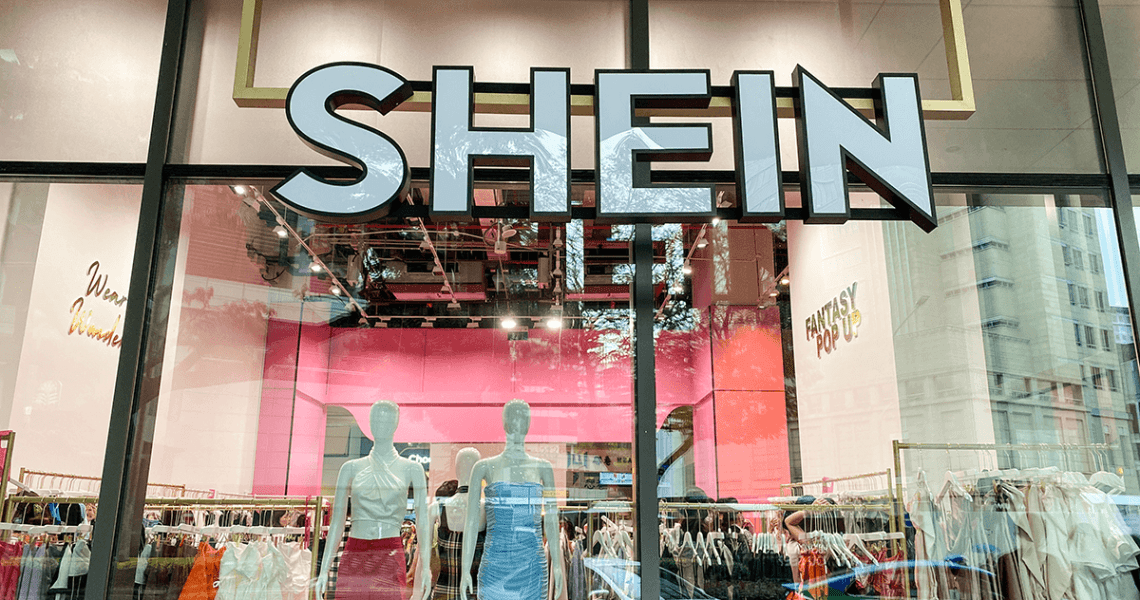Shein confidentially filed on the London Stock Exchange on Monday. The company filed papers with Britain’s Financial Conduct Authority (FCA) in early June, initiating the process for a potential London listing later this year, according to Bloomberg.
Valued at $63 billion, Shein had initially considered listing in New York but faced opposition from U.S. lawmakers. The company’s decision to list in London comes amid a backdrop of high digital marketing expenditures industry-wide and strategic adjustments for Shein after it was not admitted to the U.S. stock exchange. Shein declined to comment for this story.
Jordan Jewell, a retail expert and former IDC analyst, pointed out that e-commerce companies like Shein have had to spend a substantial amount on marketing. “Temu’s parent company, PDD Holdings, spent $2 billion last year with Meta alone,” Jewell said. Shein has not publicly reported its own advertising investment, but it does advertise on Meta and other platforms.
Shein has reported that it has an “innovative” inventory management system, which is unique when compared to traditional fast fashion brands’ processes and allows the company to be nimble. “Shein has claimed they have much less wasted inventory, compared to brands like Zara or H&M, by testing styles for a day and adjusting production based on customer reactions,” said Jewell.
Shein is now trying to sell its production system as a B2B solution. Jewell said doing so could provide the company with a competitive edge in the fashion IPO market.
The decision to list in London is strategic, aiming to avoid geopolitical tensions and stricter environmental scrutiny prevalent in the U.S. “Shein’s IPO listing in London helps them avoid being only seen as a Chinese company,” Jewell said.
Lawrence Lenihan, chairman and co-founder of fashion tech company Resonance, called out the broader implications of Shein’s IPO. He said Shein’s rapid production cycle and disposable fashion significantly contribute to waste, and with the IPO, London’s stock exchange will be supporting the company’s overproduction.
“Their extensive subcontracting often obscures the true conditions of their supply chain, raising ethical and environmental concerns,” he said.
Despite these challenges, he noted a potential silver lining of the news. “The success of Shein’s IPO could force a broader discussion about industry standards and practices, highlighting significant gaps in the current system.”
And, he added, “If Shein can prove their model is profitable while complying with stricter regulations [required for a public company], it could set a new benchmark in fashion production for the fast fashion industry.”
Shein rolled out a marketplace offering in May 2023, and brands like Skechers have been using it to sell products. In addition, Shein has evolved beyond its ultra-fast fashion roots to also sell products including skin care and toys.
“You could say Shein is becoming a bit more like Amazon or Temu in that they’re branching out,” said Jewell.
Caroline Rush, the BFC’s chief executive, conveyed her apprehension surrounding the IPO in a statement in June. “At a time when global fashion leaders are rightly focused on making our sector more socially, environmentally and economically sustainable, the Government’s courting of Shein to list on the London Stock Exchange, and Shein’s decision to do so, is of significant concern to U.K. fashion designers and retailers,” it read.
Today, in a Glossy-exclusive interview, she said, “Fashion businesses, including Shein, must embrace corporate due diligence in their supply chains. The BFC would encourage the U.K. government, the Financial Conduct Authority and the London Stock Exchange to ensure that any business listing in London is an active, responsible leader in this regard and is able to evidence addressing compliance and sustainability concerns in all areas, from worker treatment to material sourcing to citizen engagement in disposable fashion.”
However, the U.K. financial market has been sluggish, with fewer IPOs and a need for significant listings to revive interest. Shein’s potential IPO could provide a much-needed boost.
From here, Shein’s IPO process will involve a detailed review of its financials by the FCA and approval from the China Securities Regulatory Commission (CSRC). Once cleared, Shein will publicly file an intention to float on the London Stock Exchange, initiating a four-week process of book building and price guidance before trading begins.
Overall, this step by Shein represents a pivotal moment for the fast fashion industry. As Jewell said, “This IPO is not just about raising capital; it’s about positioning Shein for future growth and addressing the significant challenges in the fast fashion sector.”




